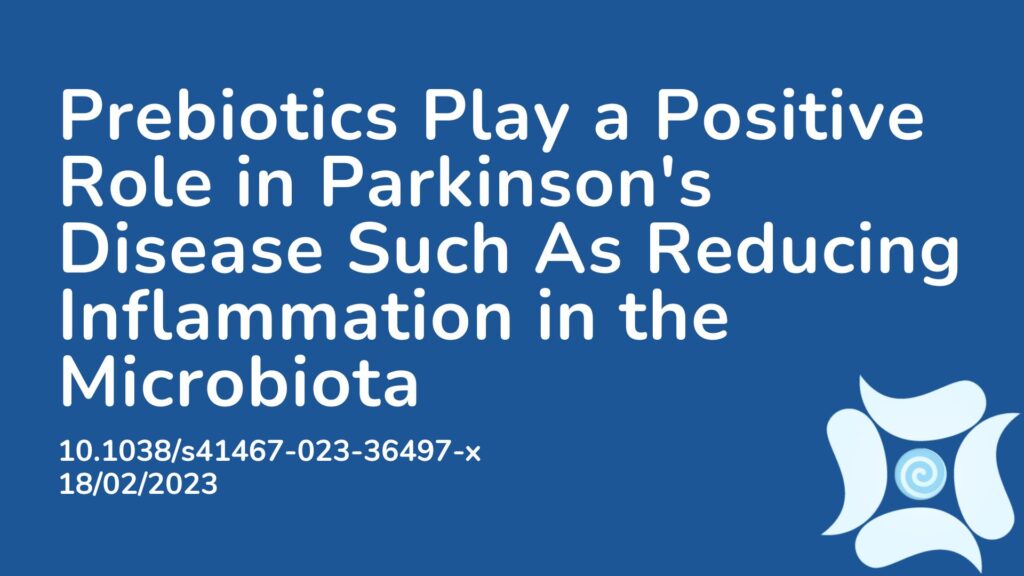Summary:
Risk factors for Parkinson’s disease (PD) are largely genetic, however increasing attention is being paid to environmental factors such as diet and the gastrointestinal tract. The human microbiota has a large role in overall health and it is reasonable that it may influence the progression of PD, as a pro-inflammatory intestinal microbiome is characteristic of this disease. The purpose of this paper was to assess the role of prebiotic fibers in PD, since they have the ability to change the microbiome. The study was conducted in patients who were newly diagnosed with PD and were given a prebiotic intervention for 10 days. The results demonstrated that the prebiotic intervention was associated with beneficial changes in the microbiota and improved short-chain fatty acid production which reduces inflammation.
Abstract:
A pro-inflammatory intestinal microbiome is characteristic of Parkinson’s disease (PD). Prebiotic fibers change the microbiome and this study sought to understand the utility of prebiotic fibers for use in PD patients. The first experiments demonstrate that fermentation of PD patient stool with prebiotic fibers increased the production of beneficial metabolites (short chain fatty acids, SCFA) and changed the microbiota demonstrating the capacity of PD microbiota to respond favorably to prebiotics. Subsequently, an open-label, non-randomized study was conducted in newly diagnosed, non-medicated (n = 10) and treated PD participants (n = 10) wherein the impact of 10 days of prebiotic intervention was evaluated. Outcomes demonstrate that the prebiotic intervention was well tolerated (primary outcome) and safe (secondary outcome) in PD participants and was associated with beneficial biological changes in the microbiota, SCFA, inflammation, and neurofilament light chain. Exploratory analyses indicate effects on clinically relevant outcomes. This proof-of-concept study offers the scientific rationale for placebo-controlled trials using prebiotic fibers in PD patients. ClinicalTrials.gov Identifier: NCT04512599.
Article Publication Date: 18/02/2023
DOI: 10.1038/s41467-023-36497-x



